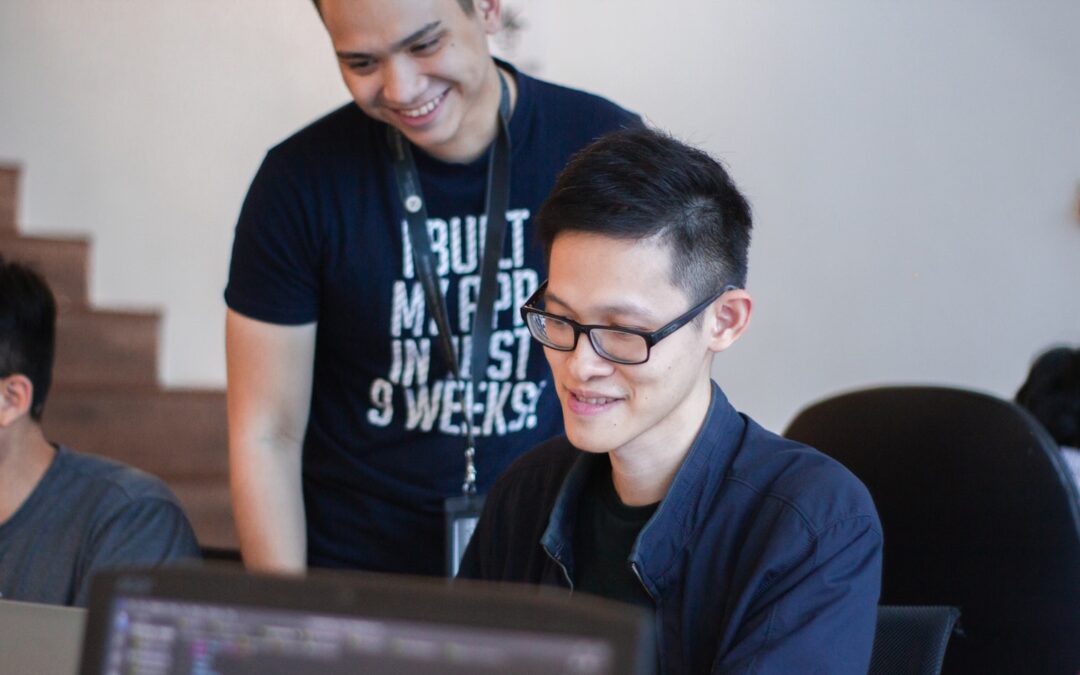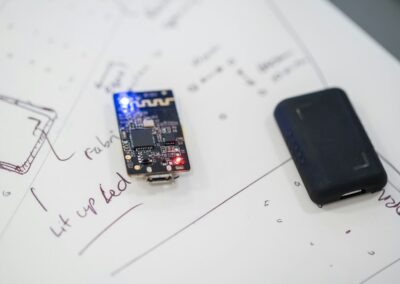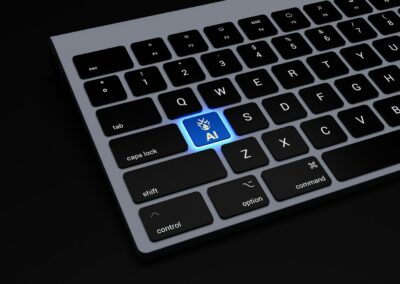Enhancing Education Through Personalization and Technology
The Importance of Differentiated Instruction in Modern Education
Leveraging AI for differentiated instruction is transforming how educators cater to the diverse learning needs and styles of students. Differentiated instruction is a teaching approach that tailors learning experiences to meet individual student needs, ensuring that each learner can achieve their full potential. In regions like Saudi Arabia and the UAE, where education reform and technological advancement are key priorities, the integration of AI into educational practices can significantly enhance the quality of education and support the development of a knowledge-based economy.
In Saudi Arabia, the adoption of AI in education aligns with Vision 2030, the nation’s strategic plan to foster innovation and technological growth. AI can analyze vast amounts of data to identify individual learning preferences, strengths, and areas for improvement. By understanding these unique characteristics, educators can design personalized learning experiences that engage and motivate students. This approach is particularly valuable in subjects like mathematics and science, where students often have varying levels of understanding and require different types of support to succeed.
Similarly, in the UAE, especially Dubai, integrating AI into education supports the city’s vision of becoming a global leader in technology and innovation. AI-powered educational tools can provide real-time feedback and adaptive learning pathways, ensuring that each student receives the right level of challenge and support. For example, AI can help identify students who may need additional practice with certain concepts and provide targeted resources to address those gaps. This personalized approach can enhance student engagement, improve academic outcomes, and foster a love of learning.
AI-Powered Tools for Personalized Learning
AI-powered tools are at the forefront of differentiated instruction, offering innovative solutions to personalize learning experiences for students. These tools can analyze data on student performance, behavior, and preferences to create customized learning plans that address individual needs. In Riyadh, educational institutions can leverage AI to transform traditional classrooms into adaptive learning environments that cater to diverse learning styles.
For instance, AI-driven learning management systems can track student progress and provide personalized recommendations for further study. These systems can identify when a student is struggling with a particular concept and suggest supplementary materials or alternative approaches to help them understand. Additionally, AI can facilitate formative assessments, allowing educators to monitor student progress continuously and adjust instruction accordingly. This real-time feedback loop ensures that students receive timely support and guidance, enhancing their learning experience.
In Dubai, the use of AI-powered educational platforms can create a more engaging and interactive learning environment. Virtual tutors powered by AI can provide one-on-one support to students, answering questions, offering explanations, and guiding them through complex topics. These virtual tutors can adapt to each student’s learning pace and style, providing a personalized learning experience that is both effective and motivating. By incorporating AI into education, Dubai can enhance the quality of education and support its vision of becoming a hub for innovation and excellence.
The Role of AI in Supporting Teachers and Enhancing Instruction
AI not only benefits students but also supports teachers in delivering high-quality instruction. By automating administrative tasks and providing actionable insights into student performance, AI can free up valuable time for teachers to focus on instruction and student engagement. In Saudi Arabia, the integration of AI into educational practices can help educators manage large classrooms and diverse student needs more effectively.
For example, AI can automate grading and provide detailed analytics on student performance, helping teachers identify patterns and trends that may require intervention. This data-driven approach allows teachers to make informed decisions about instructional strategies and resource allocation. Additionally, AI can support professional development by providing teachers with personalized recommendations for training and development based on their instructional practices and student outcomes. This continuous feedback loop can help teachers refine their skills and improve their effectiveness in the classroom.
Dubai’s educational initiatives can also benefit from AI’s ability to support teachers and enhance instruction. By leveraging AI, educators can access a wealth of data and insights that inform their teaching practices and improve student outcomes. AI-powered analytics can help teachers identify areas where students may be struggling and provide targeted interventions to address those challenges. This personalized approach ensures that all students receive the support they need to succeed, fostering a culture of continuous improvement and academic excellence.
Leadership and Management in Advancing AI in Education
Effective leadership and management are critical for the successful integration of AI in education. Business executives and mid-level managers must understand the strategic importance of this technology and champion its adoption in educational institutions. In both Saudi Arabia and the UAE, leadership in technology adoption is essential for realizing the full potential of AI in education.
In Saudi Arabia, government initiatives and regulatory frameworks are supporting the growth of AI in education. Leaders in both public and private sectors are collaborating to create an ecosystem that encourages innovation and investment in advanced educational solutions. This collaborative approach ensures that AI is effectively implemented to enhance the quality of education and align with the broader goals of Vision 2030.
Dubai’s leadership in embracing new technologies is evident in its numerous smart city initiatives and tech-driven projects. Leaders in both public and private sectors must continue to advocate for AI in education, recognizing its potential to transform the learning experience for students. Effective management practices, including strategic planning and resource allocation, are crucial for the successful deployment and scaling of AI technologies in education. By championing these innovations, Dubai can maintain its leadership in global technology and smart city development.
Conclusion: The Future of AI in Differentiated Instruction
The future of AI in differentiated instruction is promising, with significant implications for modern education and business success. In regions like Saudi Arabia and the UAE, the adoption of AI can drive innovation, enhance engagement, and foster economic growth. By leveraging the capabilities of AI, educators can create dynamic and personalized learning environments that prepare students for the challenges of the future.
Leadership and management skills are essential for realizing the potential of AI in education. Business executives and managers must champion this technology, fostering a culture of innovation and strategic thinking. As AI continues to evolve, it will play an increasingly important role in shaping the future of education and business.
In conclusion, AI is not just an emerging technology but a transformative force in modern education. By embracing this innovation, Saudi Arabia, the UAE, and other forward-thinking regions can achieve educational excellence and drive sustainable economic development, ensuring that all students have the opportunity to succeed.
#AIinEducation, #DifferentiatedInstruction, #ModernTechnology, #SaudiArabia, #UAE, #Dubai, #Riyadh, #ArtificialIntelligence, #Blockchain, #TheMetaverse, #ExecutiveCoaching, #GenerativeAI, #BusinessSuccess, #Leadership, #ManagementSkills























